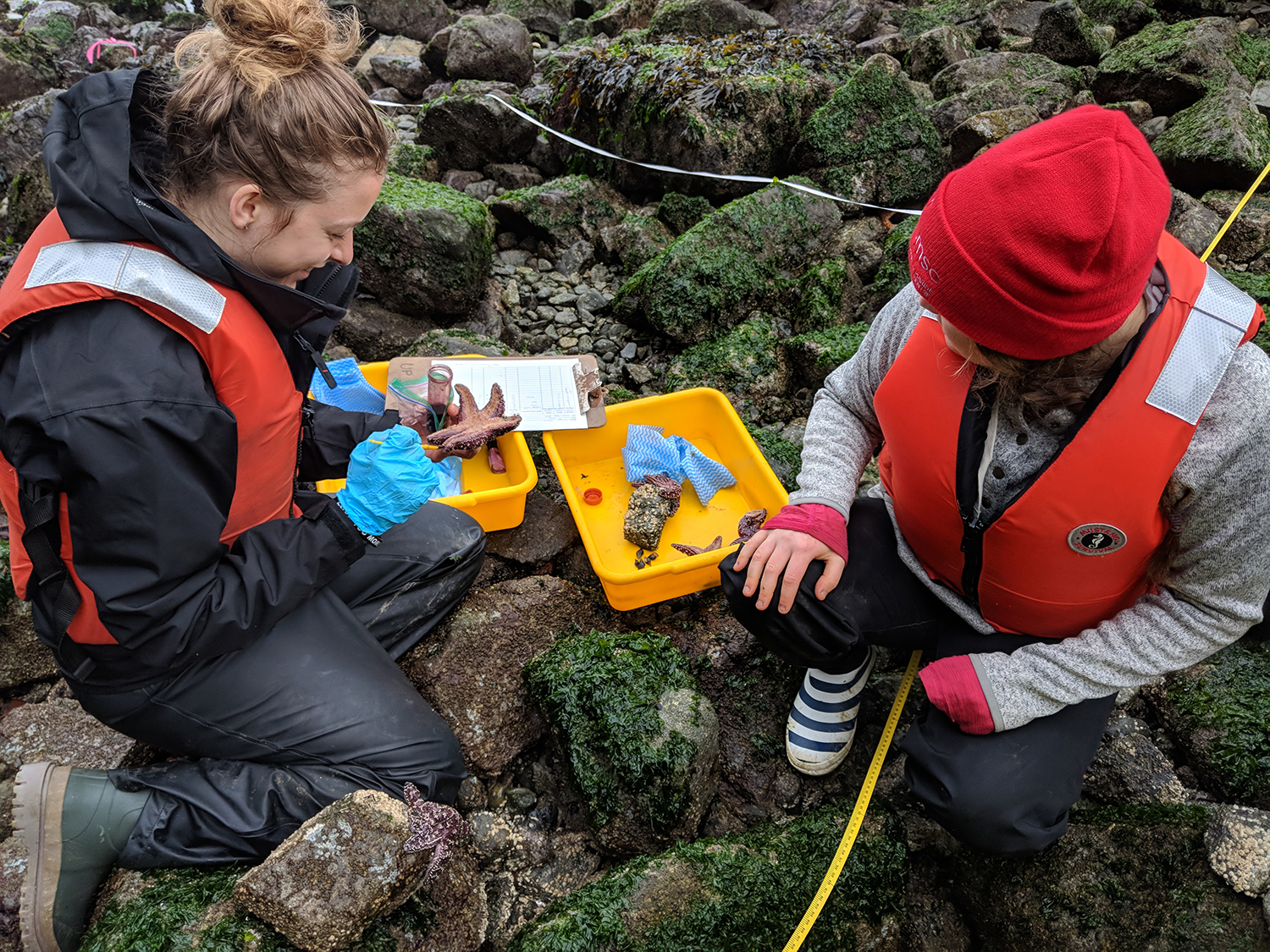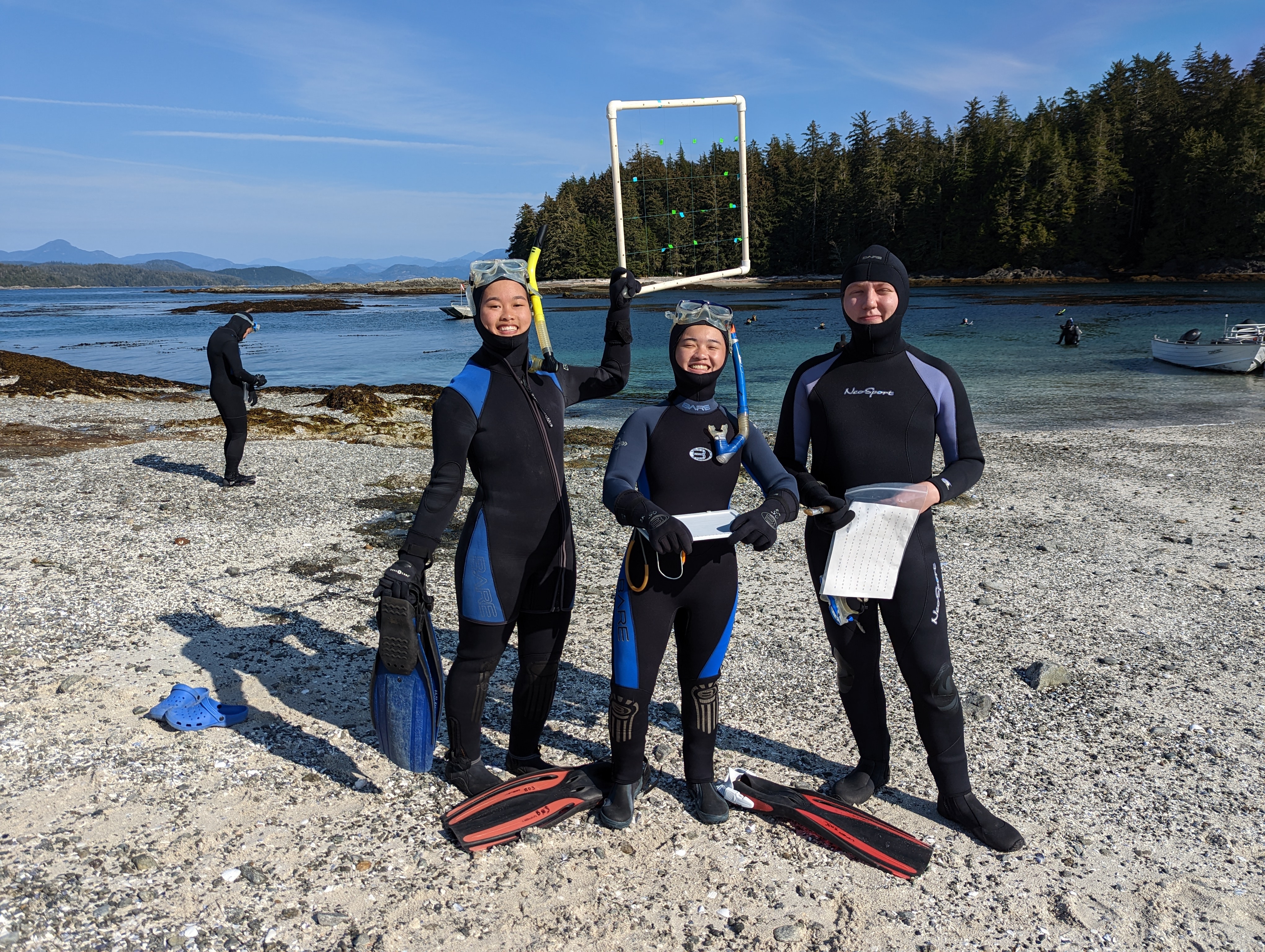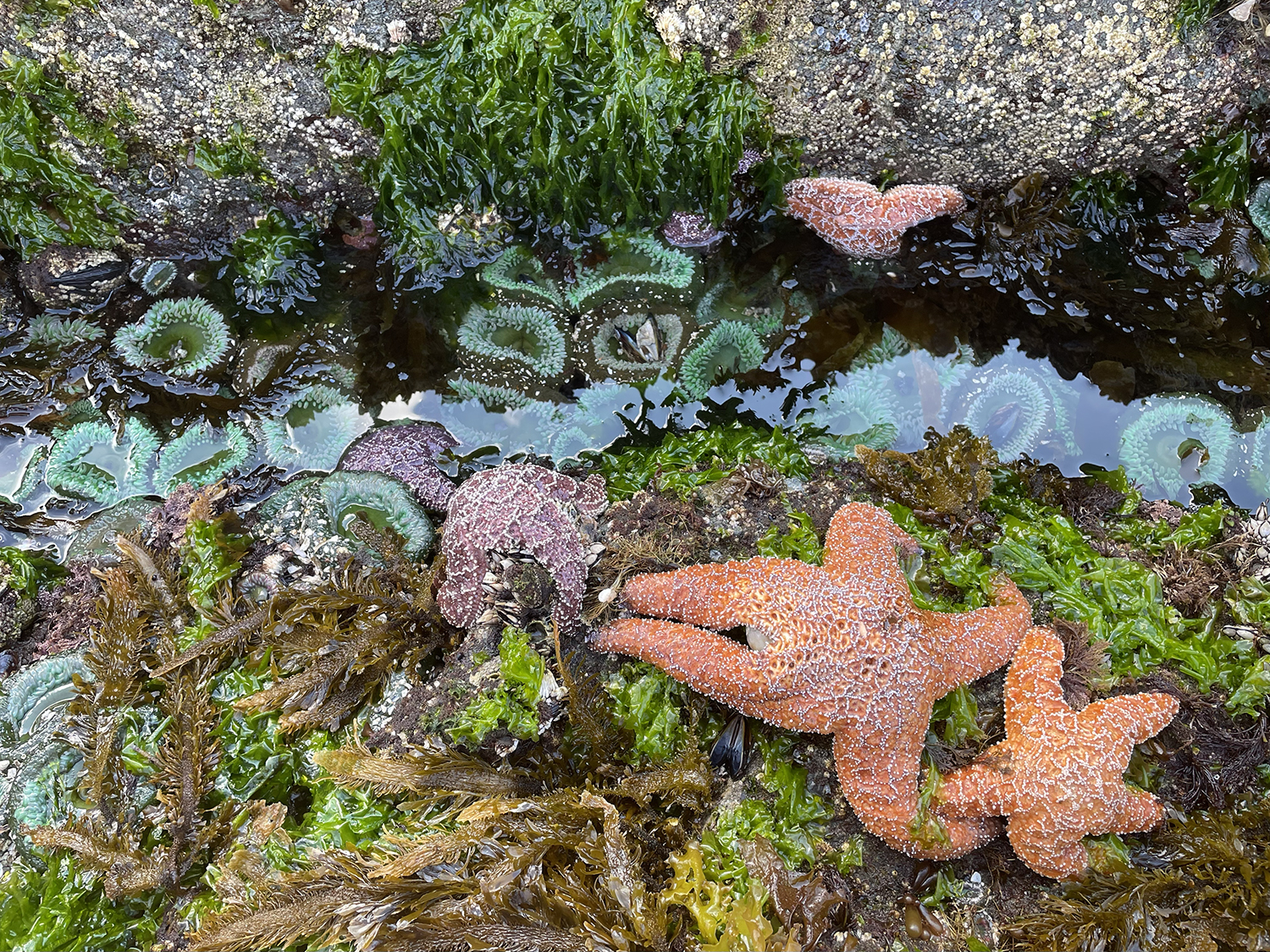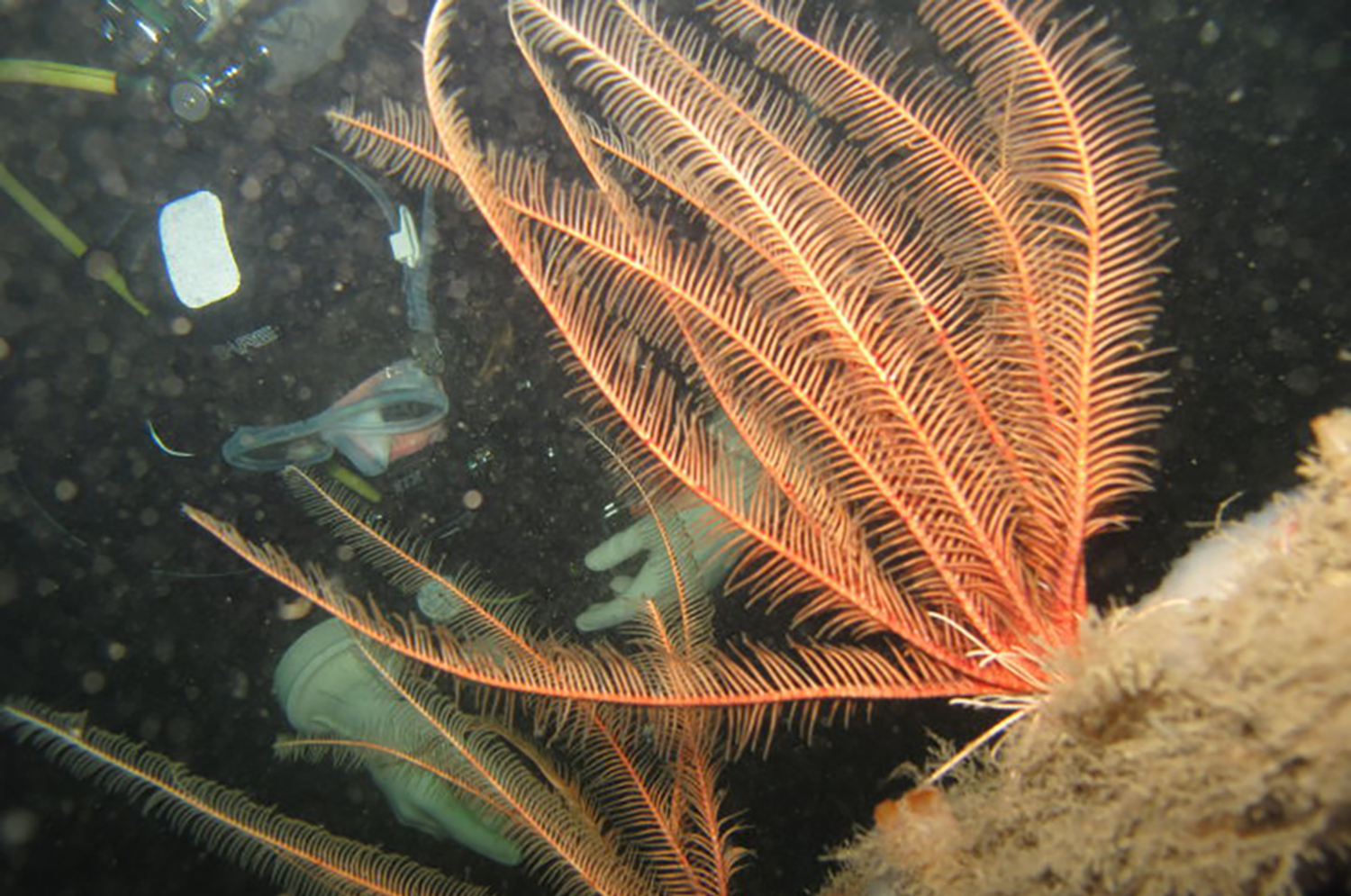
- Teacher: Coreen Forbes
- Teacher: Alessandra Gentile
- Teacher: Andrew Loudon
- Teacher: Sara Smith
Welcome to Marine Population Ecology and Dynamics (MPED)! MPED is a 3 week intensive upper-level undergraduate course during the BMSC Fall Program,
designed to provide an immersive experience in marine ecology and research
methods. In this course, we will explore the forces shaping populations and
their distributions in coastal marine environments.

- Teacher: Stephanie Green
- Teacher: Caitlin Hall
The carbonate chemistry of seawater determines how marine systems interact with the global carbon cycle. Oceans are a major sink for atmospheric CO2: about half of all human emissions have been offset by absorption into the global oceans. Unfortunately, this can also have a negative impact on ecosystems; CO2 uptake leads to a steady decrease in seawater pH (ocean acidification) which can be harmful to certain marine organisms. As a result, interest in the marine carbonate system has expanded far beyond its traditional home in chemical oceanography: biological oceanographers are increasingly interested in the physiological and ecological impacts of ocean acidification; policy makers need accurate assessments of current and future CO2 uptake for their jurisdictional waters; aquaculture and fisheries operators want to identify potential threats to their livelihood and understand mitigation options; and engineers, entrepreneurs, and environmentalists have all proposed varying natural (e.g. restoration of kelp beds) and artificial (e.g. alkalinity enhancement) interventions that may enhance the marine CO2 sink while also reducing ocean acidification. But marine carbonate chemistry is complex and challenging to measure properly, making it difficult to achieve a high level of confidence in any of these efforts.
This course will introduce you to the field, laboratory, and analytical techniques needed to address these problems. Working from BMSC’s fleet of coastal vessels, you will get hands-on experience collecting, handling, and preserving water samples for chemical analysis. In the lab, you will operate state-of-the art instruments for measuring carbonate system parameters. Utilizing data collected from novel sensors deployed at BMSC, and in the surrounding coastal environments, you will learn specific considerations for data quality control and processing. Anticipated guest lectures and tours from BMSC’s partners will position the course within the context of aquaculture applications and the emerging marine carbon dioxide removal industry.

- Teacher: Brent Else
- Teacher: Maggie Verger
- Teacher: Zoe Walker


